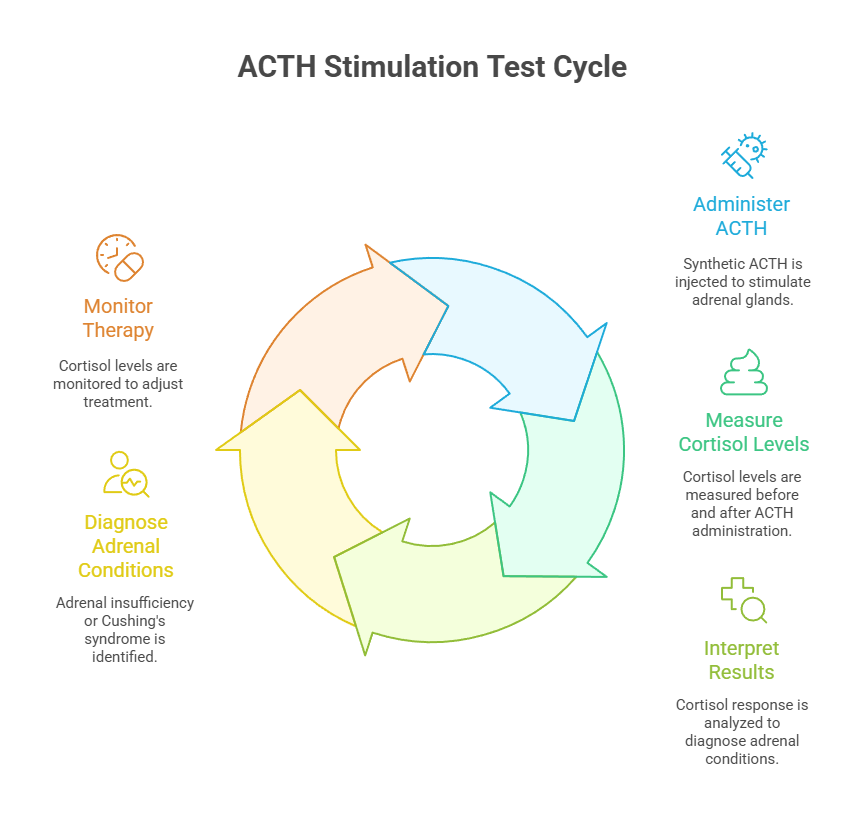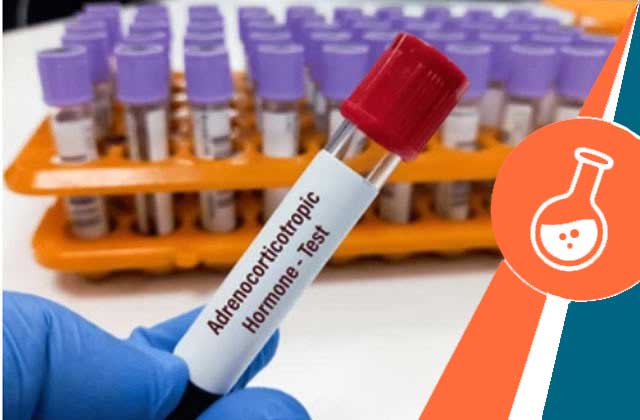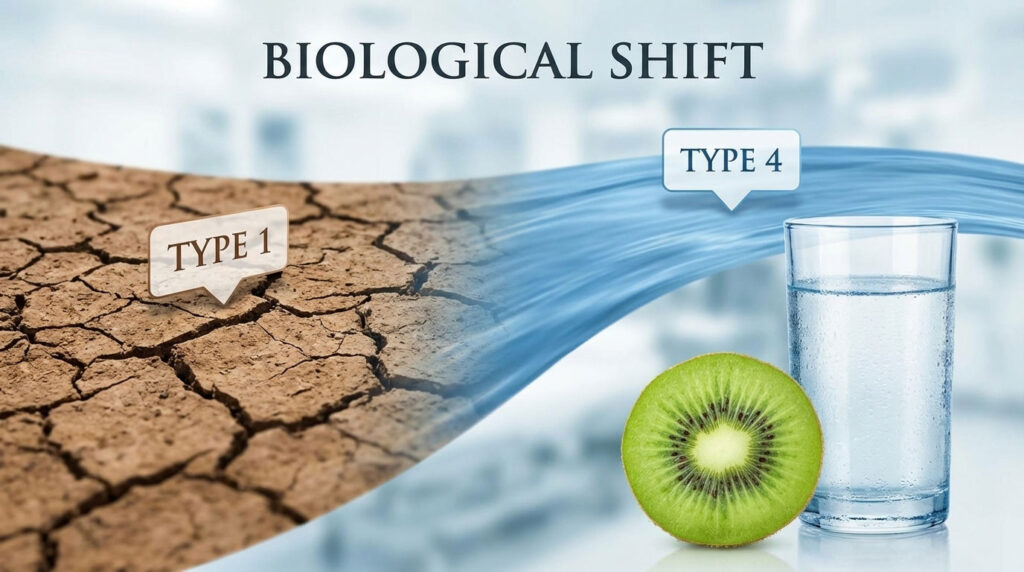
Adrenocorticotropic Hormone and its Function
Adrenocorticotropic hormone (ACTH), also known as corticotropin, is a hormone produced and released by the anterior pituitary gland in the brain. It plays a central role in the regulation of the body’s response to stress and in the control of cortisol production by the adrenal glands.
Conditions that may require ACTH Stimulation Test (Adrenocorticotropic Hormone)
The ACTH stimulation test, also known as the cosyntropin stimulation test, is a diagnostic test used to assess the function of the adrenal glands and the hypothalamic-pituitary-adrenal (HPA) axis. It is typically performed in cases where there is suspicion of adrenal insufficiency or other disorders related to cortisol production. Here are some conditions that may require an ACTH stimulation test:
- Adrenal Insufficiency: The ACTH stimulation test is commonly used to diagnose primary adrenal insufficiency, also known as Addison’s disease. In this condition, the adrenal glands fail to produce adequate amounts of cortisol and sometimes aldosterone. The test involves administering synthetic ACTH (cosyntropin) and measuring the response of cortisol levels. A blunted or absent cortisol response suggests adrenal insufficiency.
- Secondary Adrenal Insufficiency: Secondary adrenal insufficiency occurs when there is a dysfunction in the hypothalamus or pituitary gland, leading to reduced ACTH production. This can result from conditions such as pituitary tumors, trauma, or long-term use of corticosteroid medications. The ACTH stimulation test helps differentiate primary from secondary adrenal insufficiency by assessing the ability of the adrenal glands to respond to exogenous ACTH.
- Monitoring Glucocorticoid Replacement Therapy: The ACTH stimulation test may be used to monitor the effectiveness of glucocorticoid replacement therapy in individuals with adrenal insufficiency. The test assesses whether an appropriate cortisol response is achieved following ACTH administration, ensuring adequate hormone replacement and dosage adjustment if needed.
- Cushing’s Syndrome: Cushing’s syndrome is characterized by excessive production of cortisol. The ACTH stimulation test can help differentiate between different types of Cushing’s syndrome. In primary adrenal Cushing’s syndrome, cortisol levels fail to suppress in response to exogenous ACTH, indicating an autonomous adrenal cortisol production. In secondary or tertiary Cushing’s syndrome, cortisol levels typically suppress due to feedback inhibition on the pituitary or hypothalamus.
- Assessment of Hypothalamic-Pituitary Function: The ACTH stimulation test can be used to evaluate the overall function of the HPA axis. It helps identify abnormalities in the hypothalamus or pituitary gland that may affect ACTH production and subsequent cortisol release.
ACTH Stimulation Test (Adrenocorticotropic Hormone) Procedure
The Adrenocorticotropic Hormone test is performed by drawing a blood sample from a vein in your arm. Our phlebotomist, will clean the site with an antiseptic and apply a tourniquet to make the veins more visible. He will then insert a sterile needle into a vein and collect the required amount of blood into a collection tube.
Interpreting ACTH Stimulation Test (Adrenocorticotropic Hormone) Results
Interpreting the results of an ACTH stimulation test involves assessing the cortisol response to synthetic ACTH (cosyntropin) administration. Here are some general guidelines for interpreting ACTH stimulation test results:
- Normal Response: In a normal ACTH stimulation test, cortisol levels should increase significantly within 30 to 60 minutes after cosyntropin administration. The exact threshold for an adequate cortisol response may vary depending on the laboratory and the specific protocol used, but typically, a cortisol level above 18 to 20 micrograms/dL (or 500 to 550 nmol/L) is considered a normal response.
- Adrenal Insufficiency (Primary): In primary adrenal insufficiency (Addison’s disease), the adrenal glands do not produce sufficient cortisol. In the ACTH stimulation test, a blunted or absent cortisol response indicates impaired adrenal function. A cortisol level that fails to reach the expected threshold (typically <18 to 20 micrograms/dL) suggests primary adrenal insufficiency.
- Adrenal Insufficiency (Secondary): In secondary adrenal insufficiency, the problem lies in the hypothalamus or pituitary gland, resulting in reduced ACTH production. In this case, the cortisol response to ACTH administration can be impaired or delayed. However, with secondary adrenal insufficiency, the cortisol response may still reach the expected threshold, indicating preserved adrenal function.
- Cushing’s Syndrome: In Cushing’s syndrome, cortisol production is excessive. In the ACTH stimulation test, cortisol levels may fail to suppress following synthetic ACTH administration, indicating an autonomous cortisol production. This finding suggests primary adrenal or ectopic ACTH secretion as the cause of Cushing’s syndrome. However, if cortisol levels do suppress, it suggests an ACTH-dependent cause, such as pituitary adenoma or ectopic ACTH secretion.
- Monitoring Treatment: The ACTH stimulation test can also be used to monitor the effectiveness of glucocorticoid replacement therapy in individuals with adrenal insufficiency. Adequate cortisol response to ACTH administration suggests appropriate hormone replacement dosage, while an inadequate response may indicate the need for adjustments to the medication regimen.
Treatment for High Adrenocorticotropic Hormone levels
High levels of adrenocorticotropic hormone (ACTH) can be indicative of various underlying conditions. The treatment for elevated ACTH levels depends on the specific cause and associated condition. Here are some examples of conditions that may result in high ACTH levels and their respective treatment approaches:
- Cushing’s Disease: Cushing’s disease is caused by a pituitary adenoma (benign tumor) that secretes excessive ACTH, leading to increased cortisol production by the adrenal glands. Treatment typically involves surgical removal of the pituitary tumor through a procedure called transsphenoidal adenomectomy. In cases where surgery is not possible or unsuccessful, other options include medication (e.g., cortisol synthesis inhibitors or somatostatin analogs) or radiation therapy.
- Ectopic ACTH Syndrome: Ectopic ACTH syndrome refers to the production of ACTH by tumors outside the pituitary gland, such as small cell lung cancer or carcinoid tumors. Treatment involves addressing the underlying tumor through surgery, chemotherapy, radiation therapy, or a combination of these approaches. Additionally, medications to control cortisol production and manage symptoms may be prescribed.
- Nelson’s Syndrome: Nelson’s syndrome occurs in individuals who have undergone bilateral adrenalectomy (removal of both adrenal glands) for the treatment of Cushing’s disease. It is characterized by the growth of a pituitary tumor that produces elevated levels of ACTH. Treatment options include surgical removal of the tumor, radiation therapy, and medication to control cortisol production.
- Pituitary Hyperplasia or Hypersecretion: In some cases, noncancerous enlargement of the pituitary gland or excessive ACTH production can occur without a specific tumor. Treatment options depend on the severity of symptoms and may include medication to control cortisol levels or, in rare cases, surgery to remove part of the pituitary gland.
- Other Conditions: High ACTH levels can also occur in rare cases of congenital adrenal hyperplasia or as a result of certain medications or medical conditions. The treatment approach will depend on the specific underlying cause and may involve hormonal replacement therapy, medication adjustments, or management of the underlying condition.
More Related Tests
Why To Book with HealthCareOnTime

17 Crores+ Samples Processed

World Class Technology Labs

25+ Years of Trust & Experience

Free Home Collection
FAQs Around ACTH Stimulation Test (Adrenocorticotropic Hormone )
How much does ACTH Stimulation Test (Adrenocorticotropic Hormone) cost?
The ACTH Stimulation Test (Adrenocorticotropic Hormone) cost is Rs.1000, although it is now available for Rs.729 because of the offer.










